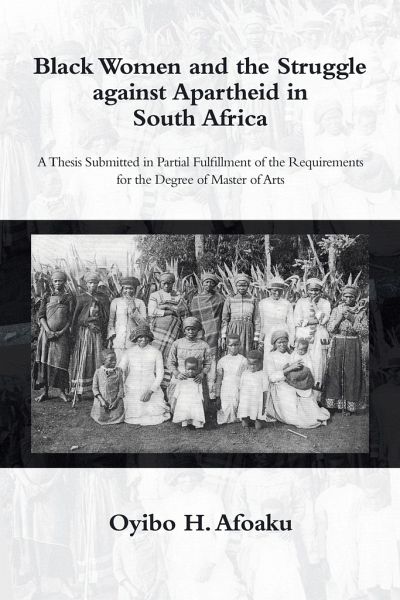
Black Women and the Struggle Against Apartheid in South Africa

PAYBACK Punkte
8 °P sammeln!
This book documents the experiences of Black women during the apartheid era in South Africa from 1948 through 1994. Before the arrival of Europeans, the Indigenous groups that made up what later became known as South Africa had instilled in their sons and daughters different gender roles based on the dominant cultural standards. Women were expected to take care of the home while the men were supposed to serve as breadwinners and leaders. Following the the decision by European travelers to establish a 'service station' at the Cape of Good Hope in 1662, Black women became more marginalized in th...
This book documents the experiences of Black women during the apartheid era in South Africa from 1948 through 1994. Before the arrival of Europeans, the Indigenous groups that made up what later became known as South Africa had instilled in their sons and daughters different gender roles based on the dominant cultural standards. Women were expected to take care of the home while the men were supposed to serve as breadwinners and leaders. Following the the decision by European travelers to establish a 'service station' at the Cape of Good Hope in 1662, Black women became more marginalized in the political, economic, and social aspects of family life and at the national level. At the same time, Black woman were reduced to 'maids' serving at the pleasure of European families and were confronted with the three-fold challenge of discrimination based on race, class, and gender. Readers will be exposed to the strategies and tactics Black women adopted in response to discrimination in and outside their homes which participating in the collective struggle against the apartheid system.




